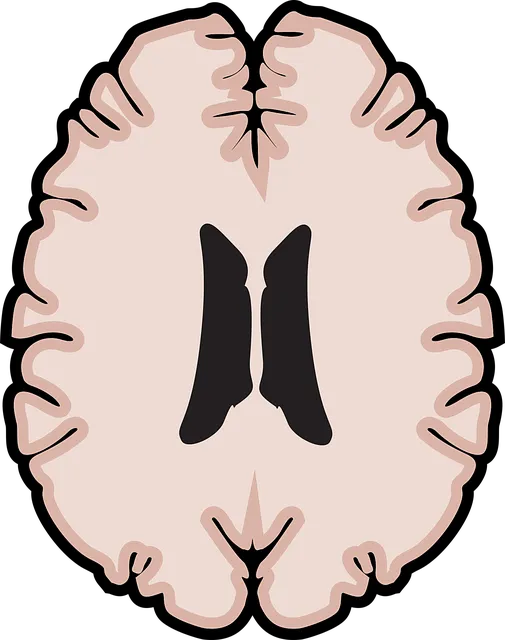Kaiser Permanente's approach to mental well-being in Westminster emphasizes resilience, as seen through their RFM (Resilience, Flexibility, Mental Health) model. This integrates self-care practices, flexible thinking, and coping strategies for stress, anxiety, or trauma, building long-term mental resilience. Their Trauma Support Services and proactive stress reduction methods showcase a commitment to community well-being. Resilience-building exercises, like Mind Over Matter, empower individuals with emotional tools and strengthen social bonds. RFM programs, implemented in Westminster, promote adaptability through mindfulness, effective communication, and empathy training during work breaks. Measuring success through improved resilience, stress levels, and well-being demonstrates the impact of these initiatives, combining both quantitative and qualitative data for a comprehensive understanding.
Resilience is a key factor in navigating life’s challenges, and the Resilient Factors Model (RFM) offers a structured approach to enhancing mental well-being. This article explores how RFM can be implemented through resilience-building exercises, drawing insights from Kaiser Permanente’s successful mental health support initiatives in Westminster, California. We delve into the community development aspect, effective program strategies, and evaluation methods to measure the impact on both individuals and communities, highlighting the potential for widespread benefit.
- Understanding RFM: A Framework for Resilience and Mental Well-being
- Kaiser Permanente's Approach to Mental Health Support in Westminster
- The Role of Resilience Building Exercises in Community Development
- Implementing Effective RFM Programs: Strategies and Best Practices
- Measuring Success: Evaluating the Impact of RFM on Individual and Community Resilience
Understanding RFM: A Framework for Resilience and Mental Well-being

Resilience is a key factor in maintaining good mental health and well-being. Understanding RFM (Resilience, Flexibility, and Mental Health) offers a structured approach to building this resilience. This framework is particularly relevant in today’s fast-paced world where stress and crises can arise unexpectedly, as highlighted by the Crisis Intervention Guidance provided by Kaiser Permanente, a leading healthcare provider based in Westminster.
The RFM model emphasizes the importance of developing self-care practices that enhance emotional healing processes. By fostering resilience, individuals can better navigate life’s challenges and maintain a positive mindset. This includes adopting flexible thinking patterns and effective coping mechanisms to deal with stress, anxiety, or traumatic events. Incorporating Self-Care Practices into daily routines is vital for building mental fortitude and ensuring long-term well-being.
Kaiser Permanente's Approach to Mental Health Support in Westminster

Kaiser Permanente, a leading healthcare organization, has made significant strides in supporting mental health and building resilience within its community in Westminster. Their approach focuses on providing comprehensive care that addresses not just symptoms but also fosters long-term well-being. By integrating various mental health services, Kaiser Permanente offers a holistic support system for individuals facing challenges related to mental wellness.
One notable initiative is the development of Trauma Support Services tailored to address the unique needs of the community. These services include specialized programs aimed at helping individuals manage and overcome trauma, utilizing evidence-based practices such as Mental Wellness Coaching Programs. Additionally, Kaiser Permanente promotes Stress Reduction Methods as a proactive approach to enhance overall mental health. Such initiatives reflect their commitment to creating resilient communities where individuals can thrive despite life’s challenges.
The Role of Resilience Building Exercises in Community Development

Resilience building exercises play a pivotal role in community development, fostering mental well-being and strengthening social bonds. These exercises, grounded in principles like Mind Over Matter, offer a powerful tool for addressing mental health concerns, such as those managed by the Kaiser Permanente mental health number Westminster. By integrating activities that promote emotional coping strategies, problem-solving skills, and effective communication, communities can create a supportive environment that enhances resilience.
Effective Mental Health Education Programs Design often incorporates these exercises to equip individuals with tools to navigate life’s challenges. Through group interactions and skill-building sessions, residents learn to communicate their needs, manage stress, and build support networks. Such initiatives not only improve individual mental health but also contribute to a more cohesive community where members feel empowered to face adversity together.
Implementing Effective RFM Programs: Strategies and Best Practices

Implementing effective RFM (Resilience, Flexibility, and Mindfulness) programs is a transformative strategy for organizations like Kaiser Permanente to enhance mental health support, especially in locations such as Westminster. These programs are designed to build resilience among employees, fostering an environment where individuals can navigate challenges with adaptability and emotional agility. One of the key aspects is incorporating Stress Reduction Methods that promote relaxation and self-care practices. Activities such as mindfulness meditation, deep breathing exercises, and yoga sessions during work breaks can significantly lower stress levels and improve overall well-being.
Additionally, Communication Strategies play a vital role in successful RFM implementation. Encouraging open dialogue where employees feel comfortable sharing their experiences and concerns creates a supportive network. Regular check-ins, team discussions, and feedback sessions allow for the exchange of ideas and best practices in dealing with stress and adversity. Empathy Building Strategies are also essential; training facilitators to recognize and validate emotions can strengthen relationships within the workplace. This fosters an atmosphere of understanding, ensuring that employees feel supported during challenging times, much like Kaiser Permanente’s commitment to mental health initiatives.
Measuring Success: Evaluating the Impact of RFM on Individual and Community Resilience

Measuring success is a critical aspect of any resilience-building initiative, especially when exploring the impact of models like RFM (Recovery, Resilience, and Mindfulness). The effectiveness of such programs can be evaluated by assessing both individual and community levels of resilience. For instance, Kaiser Permanente’s mental health numbers in Westminster might showcase improvements over time, indicating a successful implementation. This could involve tracking changes in stress levels, emotional regulation, and overall mental well-being among participants.
Furthermore, the integration of Compassion Cultivation Practices (CCP), Burnout Prevention strategies, and Social Skills Training within RFM exercises should be measured. These secondary keywords represent essential components that contribute to building a resilient community. By combining quantitative data with qualitative feedback, organizations can truly gauge the reach and benefits of resilience-building programs, ensuring they meet the unique needs of their members and foster a supportive environment.
The implementation of Resilient Factors Model (RFM) and resilience-building exercises proves to be a game-changer in fostering mental well-being, especially within communities like Westminster. As demonstrated by Kaiser Permanente’s successful mental health support initiatives in the region, these programs have the potential to significantly enhance individual resilience and overall community health. By adopting evidence-based strategies and best practices outlined in this article, organizations and communities can effectively navigate challenges and create a more resilient future for all. The focus on measuring success through impact evaluation ensures that RFM initiatives remain tailored to meet the unique needs of Westminster residents, fostering a thriving and mentally robust society.






